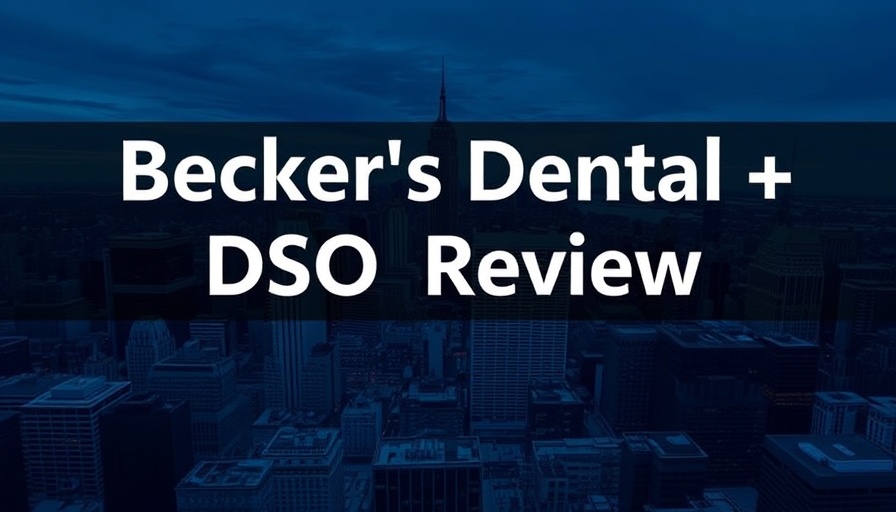
Aspen Dental Expands its Footprint in Texas and New York
Chicago-based Aspen Dental has recently made significant strides in expanding its reach by opening new practice locations in Texas and New York. This move comes as part of Aspen’s commitment to enhancing accessibility to dental care across the United States, now boasting over 1,300 practice locations nationwide. Leading the Humble, Texas, practice is Dr. Nadjib Benosman, DMD, while Dr. Shahzaib Tariq, DMD, will helm the new Selden, New York, facility. This expansion is not just about numbers; it reflects a thoughtful strategy aimed at serving diverse communities and meeting the increasing demand for quality dental services.
Impact on Local Communities and Patient Trust
For solo practitioners like Dr. Emily Johnson, a general dentist in suburban Pennsylvania, the opening of these new Aspen Dental locations can be perceived in various ways. While it signifies a growing competition within the dental landscape, it also highlights the urgent need for quality dental care that meets the evolving expectations of patients. Community involvement is paramount in healthcare, and larger organizations must recognize the importance of building trust with patients by offering tailored services that resonate within local cultures.
Challenges and Opportunities for Independent Dentists
As larger dental service organizations (DSOs) like Aspen continue to grow, independent practitioners face unique challenges, including the need to differentiate their practices. Dr. Emily Johnson may consider leveraging personalized care, patient relationships, and community engagement as key strategies to maintain her practice’s relevance amidst increasing competition. Educating patients about the unique benefits of visiting a privately owned practice—such as personalized care and longer appointment times—can also build trust and loyalty.
Future Trends in Dental Care: Technological Advancements
This expansion aligns with broader trends in healthcare where technology continues to transform patient experiences. From enhanced diagnostic tools to patient management software, advancements are redefining the landscape of dental services. These innovations not only improve operational efficiencies but also enhance the quality of care that both large DSOs and independent practitioners can provide. As the industry embraces these changes, understanding the implications of technology on patient care becomes vital for all dental professionals.
Engaging Patients in the Digital Age
In an age where potential patients often turn to online resources first for information, it’s essential for dentists like Dr. Johnson to strengthen their digital presence. This includes optimizing websites for search engines, engaging in social media to connect with local patients, and gathering online reviews that can greatly influence potential clients’ decisions. Offering virtual consultations, online booking systems, and telehealth options could also serve as compelling reasons for patients to return to familiar, trusted local practices.
Moving Forward: Building Resilience in the Dental Field
In conclusion, the recent developments with Aspen Dental reflect a pivotal moment in the dental industry landscape. For independent practitioners like Dr. Emily Johnson, navigating this evolving environment involves embracing innovation while maintaining the core values that establish patient trust. The future of dentistry, whether in large DSOs or solo practices, will hinge on a balanced approach to technological integration, community engagement, and a steadfast commitment to patient care. As competition rises, those who can adapt and innovate will continue to thrive.
For Dr. Johnson and her peers, understanding these dynamics is not just beneficial; it is essential for sustained growth and patient loyalty in an increasingly competitive market.
 Add Row
Add Row  Add
Add 




Write A Comment